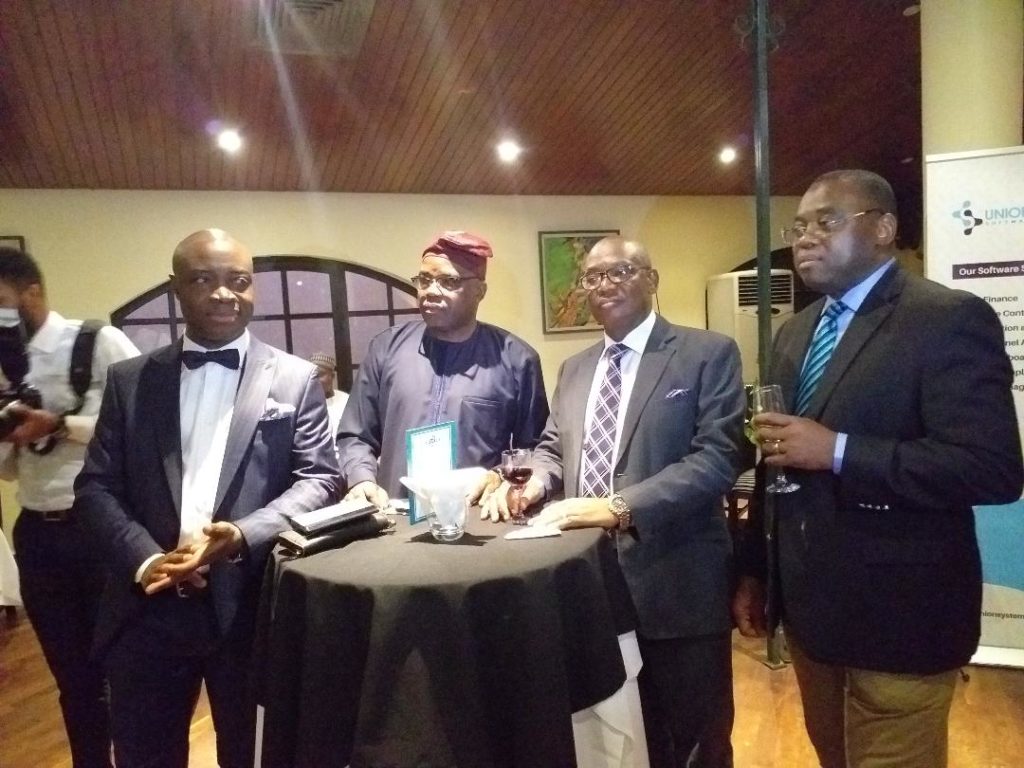…Says Nigeria To Be Like India In Software Advancement
By Aaron Ukodie

The Director-General of the National Office for Technology Acquisition and Promotion ( NOTAP), Dr Dan Azumi Mohammed, has said that with the framework for local software development and usage currently put in place and implemented by the present government and the commitment of his agency and other private collaborators, Nigeria would soon achieve the level of India in software development and usage.
Dan-Azumi spoke on Wednesday, when the software industry, collaborating with the National Software Think Tank (NSOTT), hosted him in Lagos, to show appreciation and endorse the various works he has been doing to advance local software development.
Dr Dan-Azumi, is running his second term as NOTAP DG, following his recent reappointment by President Muhammadu Buhari.
The NSOTT, which NOTAP set-up recently, had made several recommendations to take software to greater heights in Nigeria, and Dan-Azumi believes that if all stakeholders work together to implement the recommendations software development in the country would match that of India.
“I will continue to do our best to develop our country; we should not think someone from outside is coming to help us. What you need is a policy to ensure the recommendations you made are implemented”, he promised the Nigeria software industry.
He said even where Nigerians do not have the capacity in the provision of any software need in the country, they were at liberty to go out to bring expertise to help them.
According to him, Nigeria has talents and the environment to achieve software goals, noting however that what is lacking is policy, and the will that policies are implemented religiously.
He said NOTAP and NITDA are working closely and harmoniously to implement government software policies on local content and it was a matter of time for the fruits to begin to manifest.
A software stakeholder, Engr. Onyegbuche said, was it not for the way NOTAP had been helping local software companies and stopping foreign ones from usurping their roles, the Nigerians companies would have died.
He said Nigerian software stakeholders cannot continue to allow Nigeria loose over $1 billion in capital flight as a result of patronising foreign software instead of local ones.
According to him there should be a new policy that compels Nigerian companies to adopt local software within the next eight years and after that period any company that fails to do so should be taxed a minimum of 35 per cent on the use of foreign software.

Bimbo Adeoye believes that government should limit technical training for software capabilities to Nigeria, so as to discourage those who patronize foreign software because of the out of station allowances, in foreign currencies, they get on claims they were travelling for technical training on the foreign software they had acquired.
Association of Licensed Telecom Companies of Nigeria (ALTON) chairman, Gbenga Adebayo says while he agrees that Nigeria has talents there was need for the operating environment to be made friendlier.
“We need to talk to people outside our ecosystem so they can appreciate the industry challenges, adding that no industry survives where there is no regulatory independence. “ The success we have had so far in the ICT industry has been due to the independence of the regulator”, he said.
NSTT chairman, Mr Chris Uwaje, who read a statement on behalf of the software industry said the body believes that no other sector can provide the strategic, prosperous and sustainable solutions for Nigeria’s future, development, security and survivability than the software sector. Software is not just about information technology, but indeed the oxygen for human existence.
He said the main thrust of NSOFT is to converge all ICT Expert Group set up by NOTAP as a significant fall out of the 2-day ICT stakeholders Roundtable on the application and use of software in the financial sector-jointly hosted in Lagos by NOTAP and the National Information Technology Development Agency (NITDA) between 18th and 19th at the Radisson Blu Hotel, Lagos.
The main thrust of NSOFT is to advance a 5-year strategic plan to encourage adoption of indigenous software for the security and growth of the economy, build commensurate capabilities and capacities to alleviate the critical challenges of the indigenous software ecosystem and provide a formidable roadmap for the advancement, sustainable development and competitiveness of software Nigeria.
He said, ultimately, the strategic plan aims at ensuring the provision of massive employment opportunities for millions of Nigerian youth, contribute to the GDP and become a vital recourse for wealth creation and national security.
He said, in the UNCTAD 2012 edition, special attention was given to the role of software capabilities in accelerating progress towards a more inclusive information society, with particular reference to developing economics including Nigeria.
Key issues discussed include, the link between software capabilities and development, global and regional trends in production, spending, trade, investment, venture capital and employment in the software sector, and evolving ICT landscape and its impact on software production patterns.
Other key issues in focus are trends and implications related to free and open source software (FOSS) and an analysis of the market orientation of software production in developing countries.











